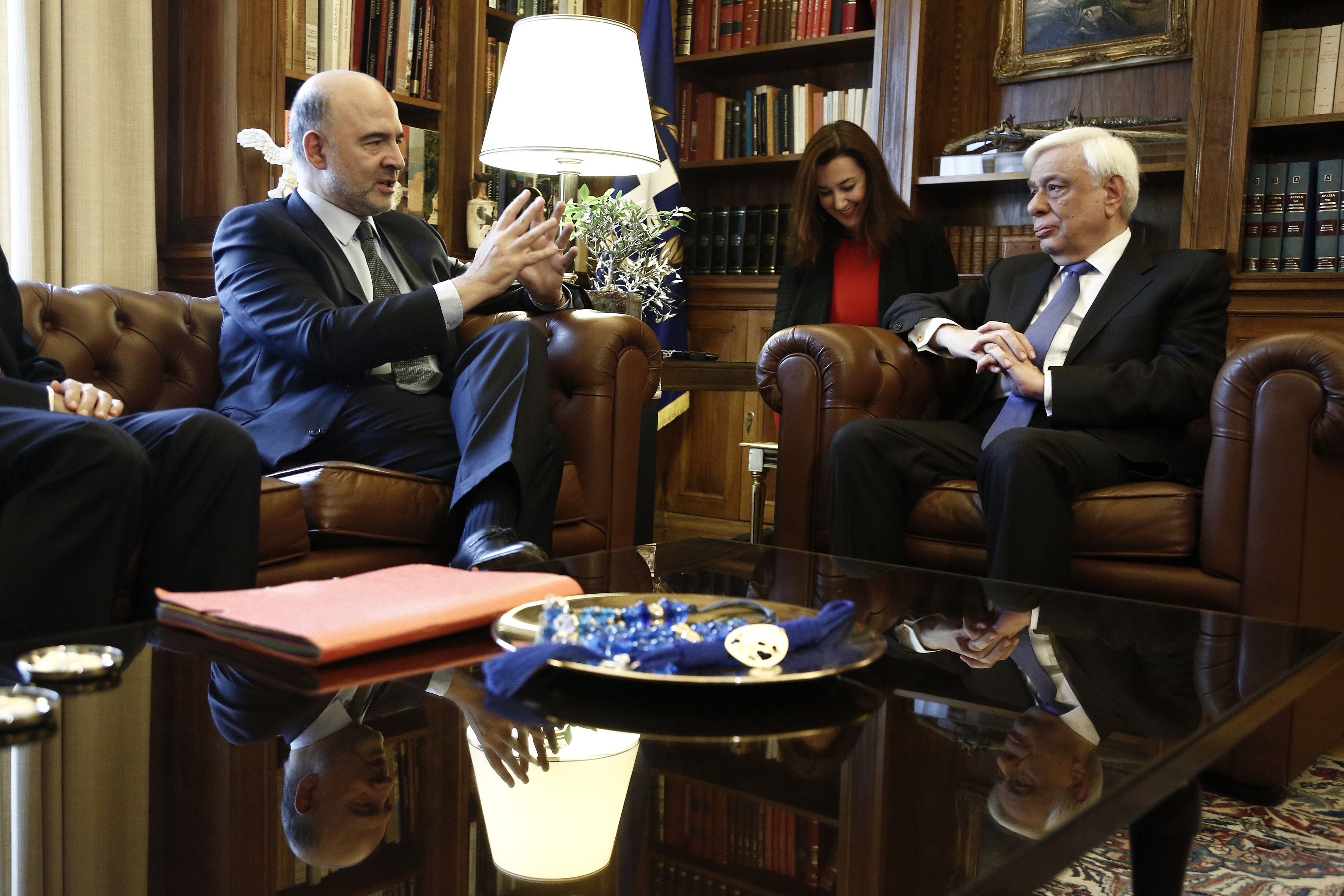President Prokopis Pavlopoulos and visiting Economic and Financial Affairs Commissioner Pierre Moscovici discussed the sacrifices of Greeks during the eight-year economic crisis and the challenges of the post-bailout era during talks in Athens.
Pavlopoulos underlined the need to avoid the errors of the past that led the Greek people to painful sacrifices, and he thanked Moscovici for his contribution and support for Greece. He said Greece is entering the phase of implementing another programme with a very different mentality and content, similar to the post-memorandum programmes of Portugal and Cyprus.
“In this programme, our request is – and I think we Greeks can pursue this in the name of EU solidarity and justice – that one take into account the fact that many of the sacrifices of the Greek people in order to remain in the EU and the eurozone, were not due to Greece’s own fault,” Pavlopoulos said.
“It is known, Commissioner, that especially the first memorandum was fraught with serious errors since its very conception. Those errors were paid for by the Greek people, through no fault of their own. Our request is that in the programme we will have in this new era, which has nothing to do with the memorandums we had until now, it be taken into account that the Greek people cannot shoulder the entire cost of mistakes that are not of its own doing,” Pavlopoulos said.
Pavlopoulos expressed confidence that once again Greece will have his support on this new path, which is easier and more hopeful.
Moscovici speaks of new era
For his part, Moscovici noted that the Eurogroup of 21 June closed the memorandum period and opened a new road, with new conditions and prospects.
Moscovici said that the situation that everyone experienced with the Greek case was tragic. He said that it was dangerous for the eurozone and difficult for Greece, and that he knows what the Greek people have been through.
He said that Greece is now standing on its own feet and is starting on a new course, which will be free and autonomous, but with its partners at its side, in the framework of solidarity and responsibility.
Moscovici said the new programme is radically different than its predecessors. “The difference is that there will not be a fiscal adjustment programme. The memorandums are over. That is the basic difference,” he said.
The Commissioner noted, however, that there will be post-bailout surveillance, as in the cases of Ireland, Portugal, and Cyprus, which will require Greece to maintain a serious fiscal policy.
“Whatever reforms there will be in the future will have been chosen by the Greeks, and will be implemented by the Greeks and for the Greeks. A new page is opening right now for Greece to return to growth, and we will be at its side, with solidarity,” Moscovici said.
The Commissioner said that Athens must turn its eye towards investment, and that had Greece exited from the euro, it would have been poorer and weaker.





